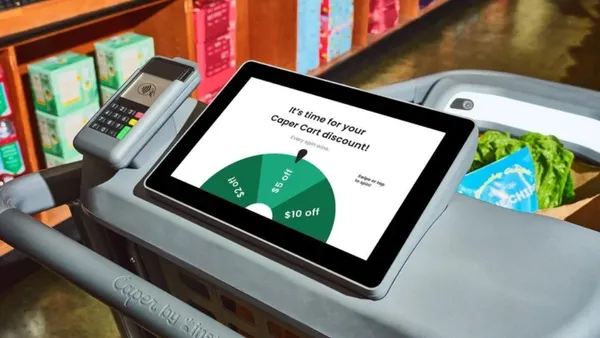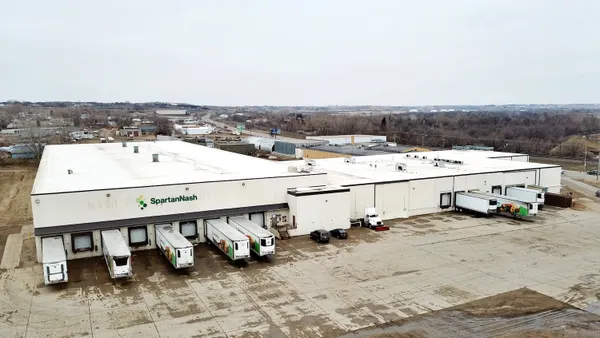To succeed in retail, you have to place your enterprise POS investments at the forefront of your brand. Your point of sale must now become an end-to-end, single platform that will drive your grocery business to the next level. You need a software solution that will give your brick-and-mortar locations a competitive market advantage against emerging online grocery retailers and delivery services.
POS is no longer just an IT decision; it's a fundamental building block to long-term success. Your POS choice is a strategic, executive decision that will drive either the success or failure of your long-term viability.
Before you sit through hours of presentations and demos, review these five critical questions to ask every POS vendor you're considering.
1. Do they offer you cash register technology or a grocery retail automation platform?
As a professional grocer, you have a choice:
- Invest in grocery technology that has a few feature or function upgrades from what you already have, or
- Partner with a firm that specializes in working with you, in tandem, as a strategic partner.
POS systems are the central operating platform that proactively manage customers, cashflow, products, security, and labor. It is the hub that drives retail success or failure. Selecting the right partner is a key business driver that must be carefully evaluated and then managed.
2. Are you purchasing a unified platform with inherent management systems, modules, and services? Or will you have to rely on multiple third-party vendors, customized code, and integrations?
By running all store operations from a single, unified commerce platform, your system will perform better, produce more accurate data in real-time, and improve the user experience for both consumers and staff.
You can also reduce the operating and maintenance expenses that result from managing multiple vendors. IT administrators will appreciate having a single platform from a single vendor to support for the entire enterprise.
Customers will enjoy a seamless transaction experience whether they are shopping online, in the store, or enrolling into the store's loyalty program.
3. Does the system offer direct, U.S.-based support with complete transparency and web access?
When there is an issue, your IT staff needs to be confident they will receive prompt, knowledgeable, and friendly support with a single point of contact. Each POS company you consider should have a U.S.-based support team, available when and where you need them, with complete transparency into their processes and issue resolution.
It is also important for them to provide a published Service Level Agreement (or equivalent) so that expectations are clearly defined up-front.
An online ticketing system, with complete past and present ticket views, allows your IT staff to easily reflect back on past issues and follow updates on new issues as soon as they happen.
4. Are you purchasing an out-of-the-box retail system built upon years of best practices or signing up for a “solution” requiring a multitude of costly, one-off customizations?
The majority of POS systems provide functionality improvements through one-off custom development for an individual retailer. While this is a profitable model for the software company, it's not a sustainable model for small to mid-size retailers. The customization approach is too expensive and often leads to retailer isolation. More so, a majority of these customizations tend to add features that are already considered best practices, which begs the question, "Why is customization even needed?"
An ideal provider builds feature sets and new functionality into their system and makes it available to its entire retail client base, not just one retailer. The advantages of this approach include ever-expanding system capability and delivery at a fixed yearly cost, allowing retailers to stay one step ahead of their competitors.
5. Does the system allow you to maximize consumer engagement and capitalize on new opportunities?
Today's digital-savvy consumers expect technology-enhanced conveniences in their shopping experience. Some customers love self-checkout, some hate it, some rely on online purchases, and some don't even know how to turn on a computer. The point is, it's up to you and your technology provider to make everyone happy or risk losing relevance and market share.
With a unified commerce approach, you can streamline transactions across multiple customer transaction points. This can empower your enterprise and elevate you above competitors. Digital loyalty programs, membership management, consumer data analysis, social media interaction, click & collect are all must-haves in today's retail world, and the only way to bring it all together is with one platform and a single data source.
In conclusion, these questions are meant to be asked to ensure you are getting a system that will propel your profits and generate continued success. When choosing your retail commerce platform, sales pitches and presentations are one thing, but it all comes down to the delivery of a system that actually performs in high volume, complex retail environments. Remember to complete your due diligence, and always ask for references.
Best of luck in your search and continued retail success!
Contact ECRS today to learn how you can get all this (and more) out of your retail automation platform.










